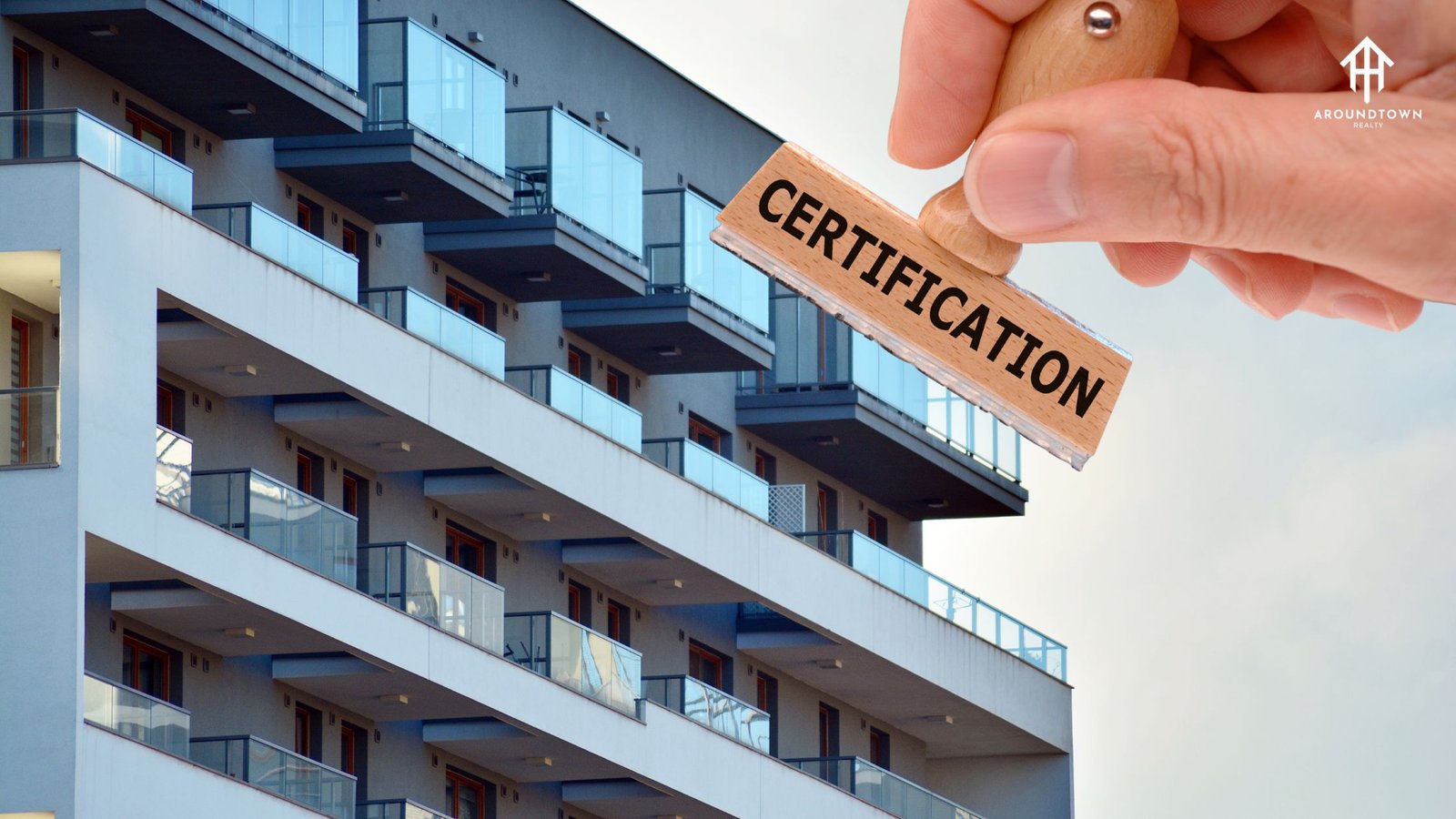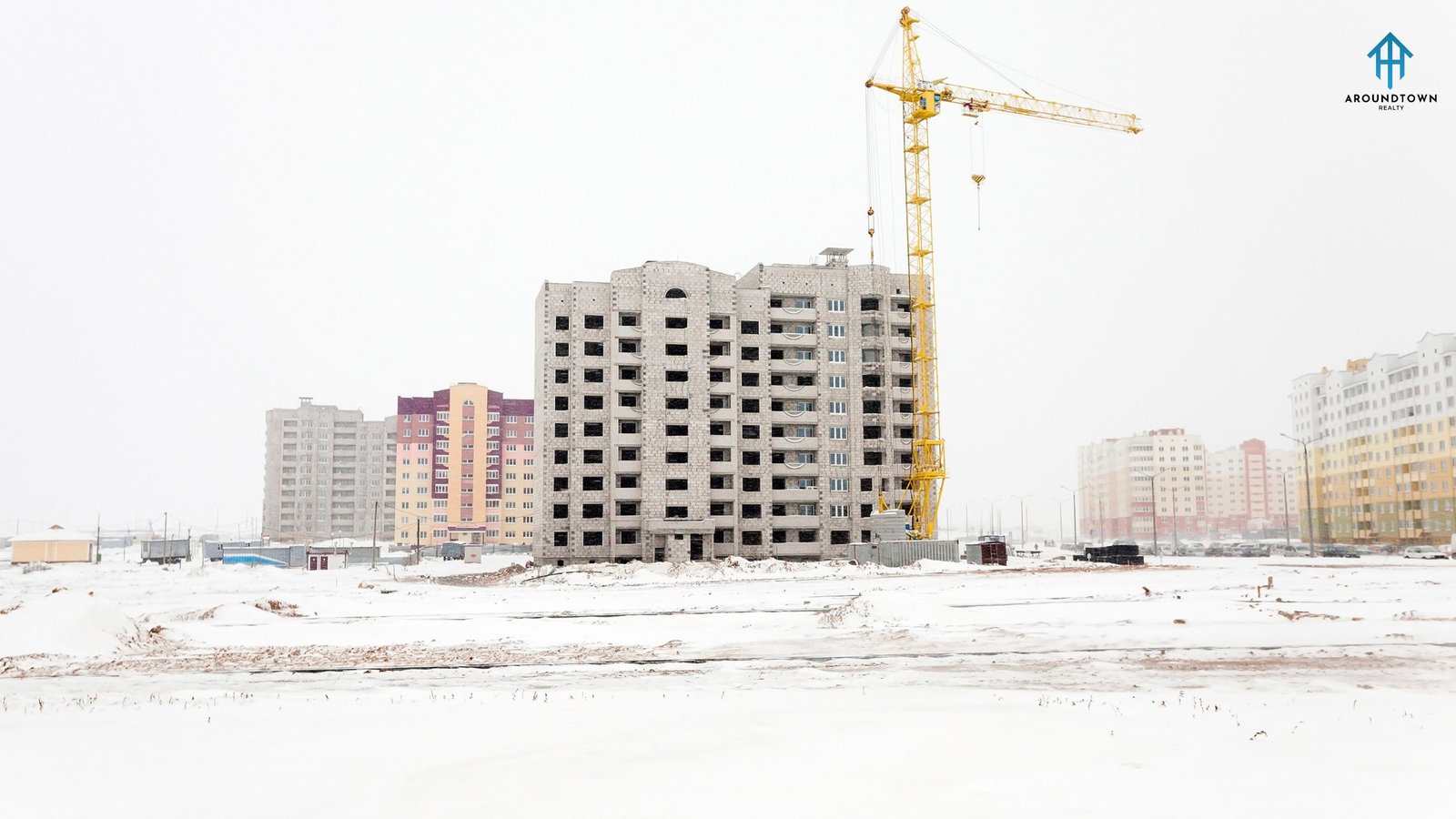When embarking on the journey of constructing a building, whether residential or commercial, one crucial document stands between the completion of the project and its lawful occupancy: the Building Completion Certificate (BCC). This certificate is not just a formality; it serves as a testament that the building has been constructed in adherence to approved plans and complies with all relevant regulations and safety standards.
Understanding the Building Completion Certificate

A Building Completion Certificate is an official document issued by local municipal authorities or relevant regulatory bodies upon the completion of a construction project. It verifies that the building has been constructed according to the sanctioned plan and complies with all applicable building codes, safety norms, and other regulations. This certificate is essential for establishing the legality of the building and is often a prerequisite for obtaining other necessary documents and utilities. Importance of the Building Completion Certificate
The significance of the BCC cannot be overstated. Here are some key reasons why this certificate is indispensable:
- Legal Validation: The BCC serves as legal proof that the building complies with approved plans and regulations, safeguarding the owner from potential legal disputes.
- Utility Connections: Authorities often require the BCC before providing essential services like water, electricity, and sewage connections.
- Property Transactions: A valid BCC is crucial when selling or leasing the property, as it assures prospective buyers or tenants of the building’s compliance and safety.
- Financial Assistance: Financial institutions may require the BCC before approving loans or mortgages, as it confirms the property’s legitimacy and adherence to regulations.
Distinction Between Completion Certificate and Occupancy Certificate
It’s important to differentiate between a Completion Certificate (CC) and an Occupancy Certificate (OC):
- Completion Certificate: Indicates that the construction is complete and adheres to approved plans and regulations.
- Occupancy Certificate: Confirms that the completed building is suitable for occupancy and complies with all safety and health regulations.
While the CC focuses on the completion of construction as per sanctioned plans, the OC ensures that the building is fit for habitation.
Process of Obtaining a Building Completion Certificate

Acquiring a BCC involves several steps:
- Application Submission: The builder or property owner submits a duly filled application form to the local municipal authority, along with necessary documents.
- Inspection: Authorities conduct a thorough inspection of the building to ensure compliance with approved plans and regulations
- Document Verification: Submitted documents, including safety certificates and NOCs, are reviewed for authenticity and compliance
- Approval and Issuance: If the building meets all criteria, the authority issues the BCC, certifying the building’s compliance and readiness for occupancy.
Differences Between Completion, Occupancy, and Possession Certificates
Understanding the distinctions between these certificates is vital:
- Completion Certificate: Confirms construction adheres to sanctioned plans and regulations.
- Occupancy Certificate: Indicates the property is safe for habitation post-construction.
- Possession Certificate: Officially hands over the property from the builder to the owner.
Common Mistakes to Avoid
When applying for a Building Completion Certificate, avoid the following pitfalls:
- Incomplete Documentation: Ensure all required documents are submitted.
- Non-Compliance: Adhere strictly to approved plans and local regulations.
- Delayed Application: Apply promptly after construction completion to avoid legal issues.
Why Homebuyers Should Check for a Building Completion Certificate

Before purchasing a property, homebuyers should verify whether the builder has obtained the completion certificate. If the property does not have one, it indicates that the construction may have deviated from approved plans or has not met necessary safety regulations. This can pose risks in future legal dealings and resale transactions.
Challenges in Obtaining a Completion Certificate
Builders and developers often face challenges while acquiring a Building Completion Certificate, such as:
- Pending Approvals from Various Departments: Builders need multiple approvals from fire, environment, and other civic bodies.
- Deviations from Approved Plan: If the building deviates from the sanctioned plan, authorities may delay the approval.
- Incomplete Paperwork: Missing documents can result in unnecessary delays.
- Corruption and Bureaucracy: Sometimes, obtaining the certificate can be delayed due to bureaucratic red tape.
How to Check if a Property Has a Building Completion Certificate
Buyers can request the builder or developer to provide the Building Completion Certificate before purchasing a property. Additionally, local municipal websites often have an online verification system where one can check the status of the certificate.
Steps to Follow if a Builder Fails to Provide a Completion Certificate
If a builder does not provide a Building Completion Certificate, homebuyers can take the following actions:
- Lodge a Complaint with RERA: Buyers can file a complaint under the Real Estate Regulation and Development Act (RERA) for non-compliance.
- Approach the Consumer Court: If a builder refuses to comply, buyers can approach consumer courts to demand legal action.
- Seek Legal Assistance: Consulting a real estate lawyer can help buyers take the appropriate legal steps.
The Role of RERA in Ensuring Completion Certificates
The Real Estate Regulation and Development Act (RERA) mandates that developers must obtain all necessary approvals, including the Completion Certificate, before offering possession to homebuyers. RERA ensures:
- Transparency in real estate transactions.
- Protection of homebuyers’ rights.
- Strict penalties for non-compliant builders.
Documents Required for the Building Completion Certificate
The documentation may vary by jurisdiction, but generally includes:
- Approved Building Plan: A copy of the sanctioned building plan.
- Completion Certificate from Architect/Engineer: A statement confirming that the construction complies with approved plans.
- NOCs from Relevant Departments: Clearances from fire, water, sewage, and other departments as applicable.
- Structural Safety Certificate: A certificate affirming the structural integrity of the building.
- Property Tax Receipts: Proof of payment of property taxes.
Consequences of Not Having a Building Completion Certificate

Operating a building without a BCC can lead to several issues:
- Legal Repercussions: The building may be deemed illegal, leading to penalties or demolition orders.
- Denial of Utilities: Essential services like water and electricity may be withheld.
- Challenges in Property Transactions: Selling or leasing the property can become problematic without a valid BCC.
- Financial Hurdles: Obtaining loans or mortgages against the property may be difficult.
FINAL WORDS: How AroundTown Realty Can Assist You
Navigating the complexities of obtaining a Building Completion Certificate can be daunting. At AroundTown Realty, we specialize in guiding our clients through every step of the process. Our team of experts ensures that all documentation is accurately prepared and submitted, and we liaise with relevant authorities to expedite inspections and approvals. Trust us to make your journey to lawful occupancy seamless and stress-free.
Frequently Asked Questions (FAQs)
1. What is the primary purpose of a Building Completion Certificate?
The BCC serves to confirm that a building has been constructed in accordance with approved plans and complies with all relevant regulations and safety standards.
2. Who is responsible for obtaining the Building Completion Certificate?
Typically, the builder or property owner is responsible for applying for and obtaining the BCC from the local municipal authority.
3. Can I occupy my building without a Completion Certificate?
Occupying a building without a BCC is not advisable, as it may lead to legal issues and denial of essential services.
4. How long does it take to obtain a Building Completion Certificate?
The duration varies by jurisdiction but generally takes a few weeks after the submission of all required documents and successful inspections.
5. Is a Completion Certificate the same as an Occupancy Certificate?
No, while both are important, the Completion Certificate pertains to the completion of construction as per approved plans, whereas the Occupancy Certificate confirms the building’s suitability for habitation.









